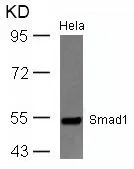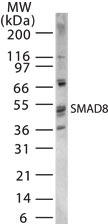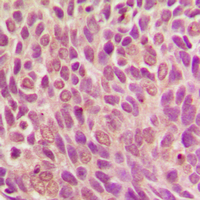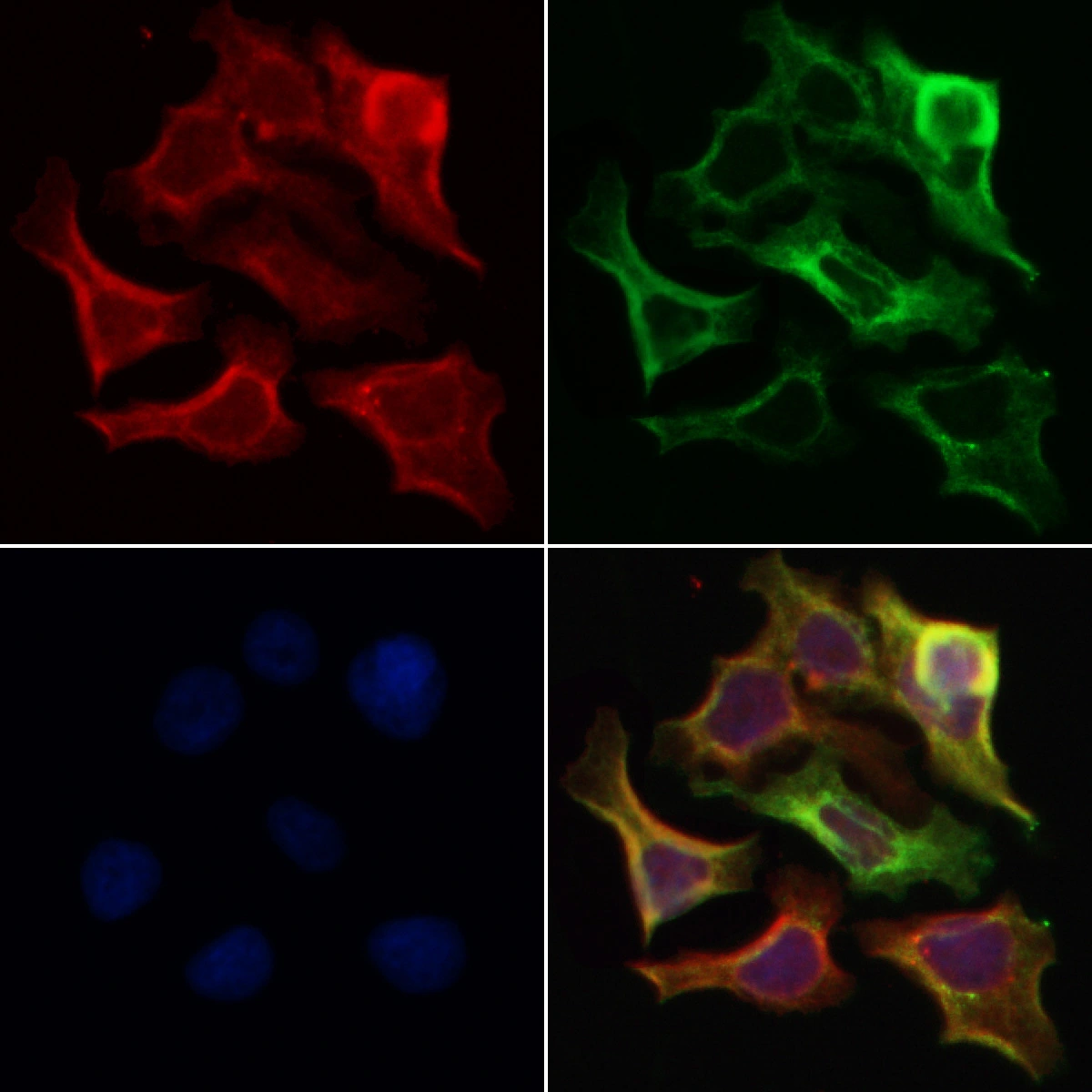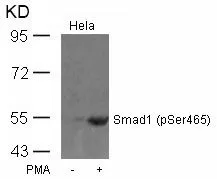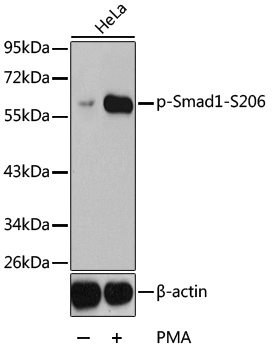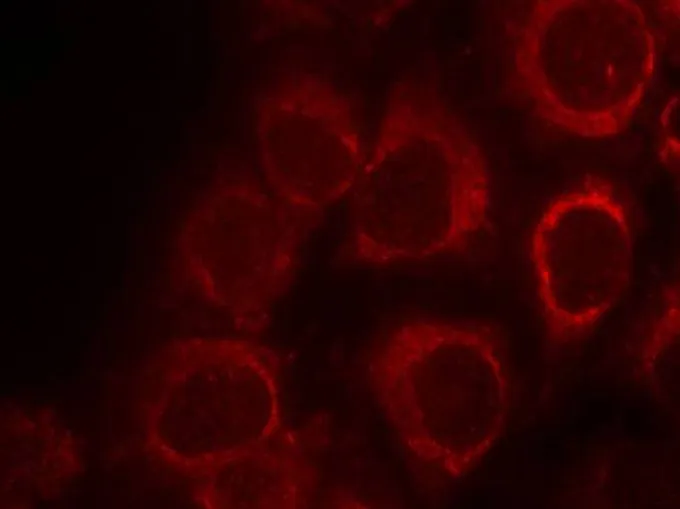
ICC/IF analysis of methanol-fixed HeLa cells using GTX50625 Smad1 antibody.
Smad1 antibody
GTX50625
ApplicationsImmunoFluorescence, Western Blot, ImmunoCytoChemistry
Product group Antibodies
TargetSMAD1
Overview
- SupplierGeneTex
- Product NameSmad1 antibody - Orthogonal Validated
- Delivery Days Customer9
- Application Supplier NoteWB: 1:500-1:1000. ICC/IF: 1:100-1:200. *Optimal dilutions/concentrations should be determined by the researcher.Not tested in other applications.
- ApplicationsImmunoFluorescence, Western Blot, ImmunoCytoChemistry
- CertificationResearch Use Only
- ClonalityPolyclonal
- Concentration1 mg/ml
- ConjugateUnconjugated
- Gene ID4086
- Target nameSMAD1
- Target descriptionSMAD family member 1
- Target synonymsBSP1; BSP-1; JV41; JV4-1; MAD, mothers against decapentaplegic homolog 1; MADH1; MADR1; Mad-related protein 1; mothers against decapentaplegic homolog 1; mothers against DPP homolog 1; SMAD, mothers against DPP homolog 1; TGF-beta signaling protein 1; transforming growth factor-beta signaling protein 1
- HostRabbit
- IsotypeIgG
- Protein IDQ15797
- Protein NameMothers against decapentaplegic homolog 1
- Scientific DescriptionThe protein encoded by this gene belongs to the SMAD, a family of proteins similar to the gene products of the Drosophila gene mothers against decapentaplegic (Mad) and the C. elegans gene Sma. SMAD proteins are signal transducers and transcriptional modulators that mediate multiple signaling pathways. This protein mediates the signals of the bone morphogenetic proteins (BMPs), which are involved in a range of biological activities including cell growth, apoptosis, morphogenesis, development and immune responses. In response to BMP ligands, this protein can be phosphorylated and activated by the BMP receptor kinase. The phosphorylated form of this protein forms a complex with SMAD4, which is important for its function in the transcription regulation. This protein is a target for SMAD-specific E3 ubiquitin ligases, such as SMURF1 and SMURF2, and undergoes ubiquitination and proteasome-mediated degradation. Alternatively spliced transcript variants encoding the same protein have been observed. [provided by RefSeq, Jul 2008]
- Storage Instruction-20°C or -80°C,2°C to 8°C
- UNSPSC12352203

